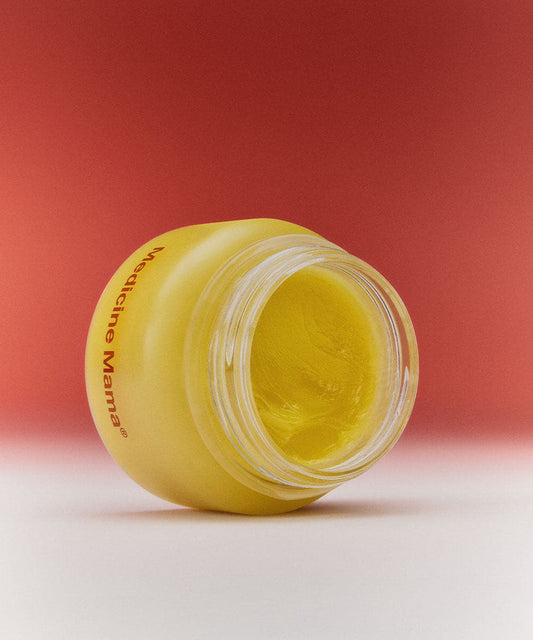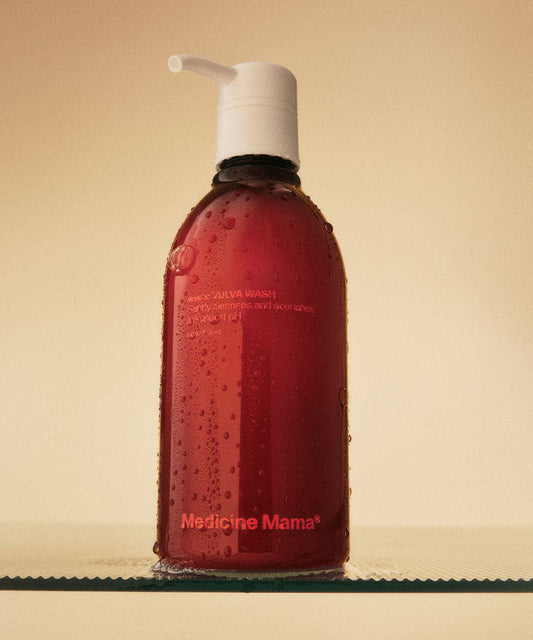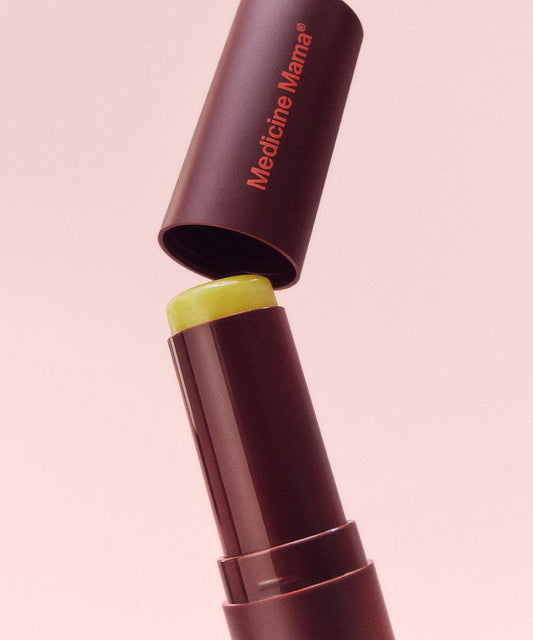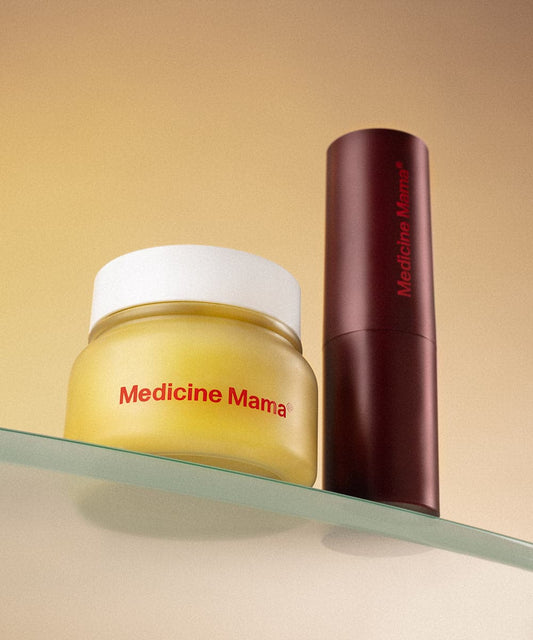
Reviewed by | Melinda (Melle) Hany, RN, ADN Registered Nurse
Let’s be real: talking about sex after menopause can feel like tiptoeing into a weirdly unlit room — one you weren’t exactly given a map for. You might have questions. Or not even know which questions to ask.
Maybe it’s been a while. Maybe it hasn’t, but something feels different. Either way, you're not broken, you're not alone, and you're definitely not the only one Googling this stuff at 11 p.m.
At Medicine Mama, we believe sex should still feel like yours, whatever that looks like now. That’s why we put together this article: to help you feel more informed, less frustrated, and way more in tune with your body.
So, if things feel different, confusing, or just a little off lately, keep reading. Here’s what you need to know about sex after menopause.
What Exactly Is Menopause?
Menopause refers to the moment when you’ve gone 12 full months without a period, and not because of pregnancy or a medical procedure. That’s the clinical definition. But what most people call “menopause” actually includes three stages: perimenopause, menopause, and postmenopause.
- Perimenopause is the lead-up. Hormones start shifting, cycles become irregular, and your body starts dropping hints that things are changing. This stage can last years (yes, really).
- Menopause is that official 12-month mark with no period. It usually happens between ages 45 and 55, but it can vary.
- Postmenopause is everything after that. Hormone levels settle into their new normal, and your body continues adjusting. This is the stage where people often notice longer-term changes, especially when it comes to things like skin, sleep, and sex.
Not sure if you’ve hit this milestone or just caught in the hormone shuffle? Your doctor can help you figure out where you are on the menopause timeline, whether you’re just getting started, in the thick of it, or coming out the other side.
So, What Happens to Your Sex Life After Menopause?
Short answer? It can change.
Longer answer? It probably will. Your hormones are shifting, your body’s adjusting, and what used to work without a second thought might suddenly feel different. And that’s okay. It’s just your body doing its thing. “It’s all about learning how to work with, instead of against, your body. It definitely doesn’t have to mean an end to pleasure or an active sex life,” notes Melinda Hany, Registered Nurse.
Dryness
First, there’s the whole dryness issue. Lower estrogen levels can lead to less natural lubrication, which means more friction and less comfort during sex. That can make things feel tighter, more sensitive, or just plain uncomfortable. If you’ve ever tried to slip into a too-small pair of jeans fresh out of the dryer, you get the idea.
Tissue Thinning
Then there’s the tissue situation. With less estrogen, the skin around your vulva and vaginal opening can become thinner and less elastic, which means it’s more prone to irritation and micro-tears. Not exactly the recipe for a fun, carefree night.
Libido
Hormone changes can also throw your sex drive a little off balance. You might not feel as spontaneously interested as you used to, or you might notice that it takes a little more time to get fully into the moment. That can be frustrating, especially if you’re used to your body responding a certain way.
Mood Changes
Oh, and those famous mood swings? They don’t exactly set the mood. When your emotions are all over the place, it’s hard to feel sexy or even present enough to want to connect.
Throw in some sleep issues, hot flashes, and the occasional 3 a.m. wake-up call, and it’s easy to see how your sex life might take a hit. After all, it’s hard to feel like your best self when you’re sweaty, exhausted, and can’t remember why you walked into a room.
How Can You Stay Comfortable and Connected?
Just because your body’s changing doesn’t mean your sex life has to flatline. It just means you might need to switch things up, try a few new tricks, and give yourself a little more grace.
Consider these tips:
Make Friends With Moisturizer
If things are feeling a little tight, sensitive, or just plain off, adding a daily moisturizer to your routine can make a big difference. It’s not just about sex — it’s about keeping your skin comfortable all day, whether you’re sitting at your desk, going for a walk, or just trying to get through the day without wincing every time you cross your legs.
The key is to find something that’s gentle enough for daily use but still effective at keeping things soft and hydrated. Our VMAGIC® Vulva Balm is a great choice. It’s organic, hormone-free, and made for sensitive, shifting skin.
Just scoop out a small amount and massage it into the vulvar skin (think inner and outer labia, clitoris, vaginal opening, and mons pubis) for everyday comfort.
Treat Foreplay Like the Main Event
Here’s the truth: “warming up” isn’t optional anymore. And that’s not a bad thing. More touch, more intention, more time to actually feel connected? Yes, please.
Whether it’s a longer makeout session or more time exploring what feels good, this part isn’t just a lead-up. For a lot of people, it is the most satisfying part. So lean into it. Take the pressure off penetration. You don’t need to follow the script — you just need to like what’s happening.
Keep Lube on Standby
Even if you never needed it before, lube is one of those things that can turn a so-so night into a way-better-than-expected one. It’s the secret weapon of post-menopause sex, and honestly, it just makes things easier.
Not all lubes are created equal, though. You want something that’s water-based if you’re using condoms or toys, and it’s a good idea to avoid anything with glycerin, parabens, or questionable additives that might mess with your body’s natural balance.
Our Intimate Glide is a solid pick. It’s organic, water-based, and designed to play nice with sensitive skin. Just start with a small amount, see how your body reacts, and go from there. You might even forget why you ever skipped it in the first place.
See a Pelvic Floor Specialist
If sex still hurts no matter what you try — or if you’re feeling pressure, tension, or like your body’s resisting — you might be dealing with pelvic floor tightness. This is way more common than most people realize, and it’s not something you have to figure out on your own.
A pelvic floor physical therapist can help you understand what’s going on and give you simple techniques to relax those muscles. It’s not weird. It’s not invasive. It’s just support for a part of your body that’s been through a lot. Think of it as physical therapy, just a little more private.
Know When To Call a Pro
Some changes are totally manageable with a little extra care. Others? Not so much. If you’ve tried the lube, the moisturizer, the patience, and sex still hurts every time or feels off in a way you can’t explain, it’s probably time to loop in your provider.
Sharp or deep pain, spotting after sex, burning that lingers, or a feeling like something just isn’t right? Those are all worth a check-in. Same goes for skin changes that look or feel unfamiliar, or if your libido has completely vanished and it’s bugging you.
You don’t have to “wait it out” or assume this is just how it is now. Your OB-GYN can help you figure out what’s going on and what options are actually worth your time. This isn’t about being dramatic — it’s about staying in touch with your body and getting the support you need to feel good in it.
The Bottom Line
Sex after menopause might look different, but that doesn’t mean it has to feel confusing, uncomfortable, or off-limits. Your body’s changing, but that just means it might need new things, more time, or a little extra support to feel like yours again.
You don’t have to settle. You don’t have to power through. And you definitely don’t have to figure it out alone. Whether it’s adding a daily moisturizer, keeping lube close, or talking with your doctor, every step you take to feel more in touch with your body is a step in the right direction.
At Medicine Mama, we’re here for all of it — the questions, the discomfort, the rediscovery. Our products are made to support your body where it is, not where it used to be.
So, if you're ready to feel more comfortable, more confident, and more like yourself again, take a look at our vulva-safe essentials. You deserve that kind of care.
Sources:
What Is Menopause? | National Institute on Aging
Vaginal dryness after menopause: How to treat it? | Mayo Clinic
Vaginal Atrophy: Causes, Symptoms, Diagnosis & Treatment | Cleveland Clinic
Mood Changes During Perimenopause Are Real. Here’s What to Know. | ACOG



